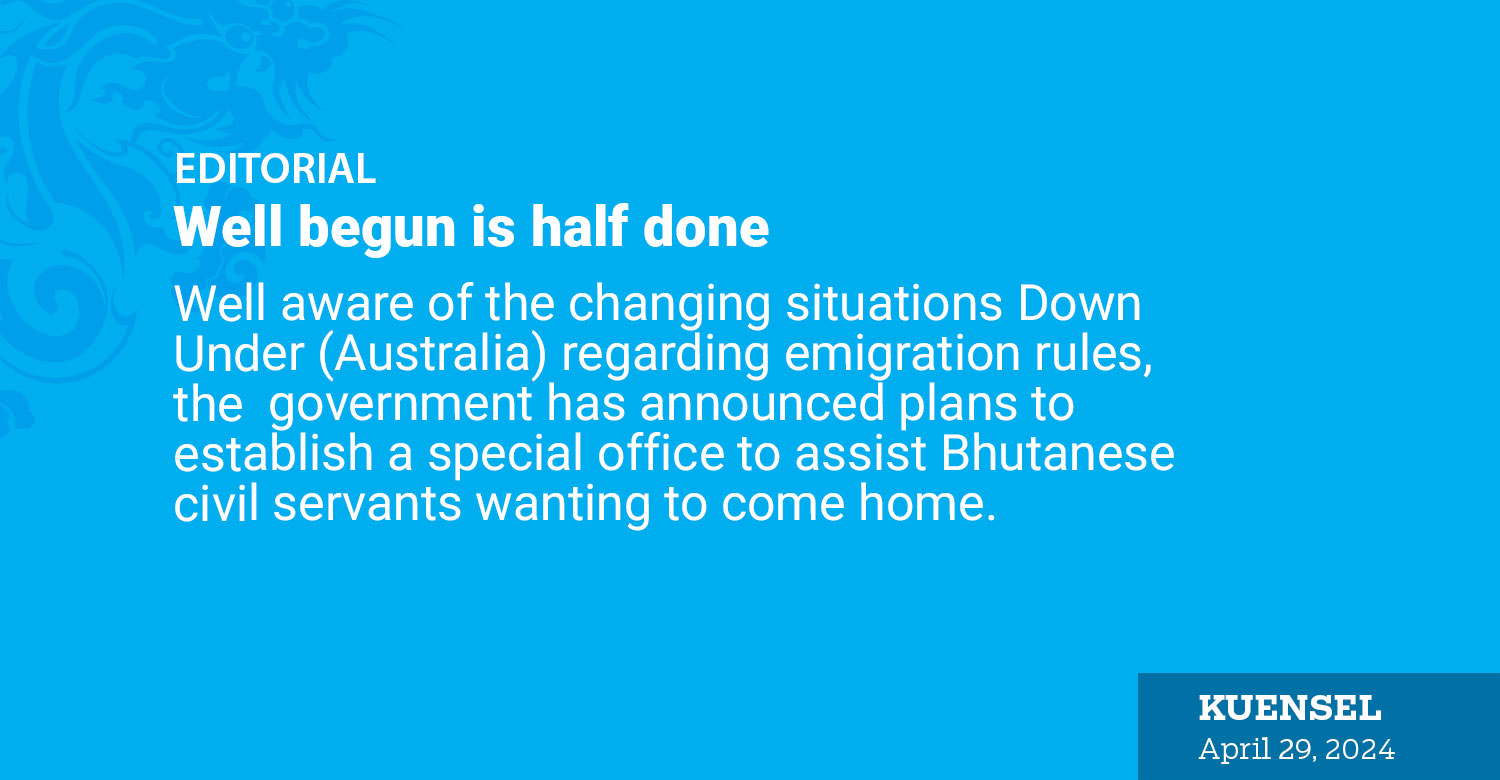Well aware of the changing situations Down Under (Australia) regarding emigration rules, the government has announced plans to establish a special office to assist Bhutanese civil servants wanting to come home.
With the Australian government announcing changes to its Temporary Graduate visa programmes, one key proposed change could affect thousands of Bhutanese. If the maximum eligible age for applicants in the post-vocational education work stream and post-higher education work stream is reduced to 35 years, many Bhutanese would be forced to come home.
Coming home is not a problem. And the government is making them feel welcomed. Even as discussions of the new visa rule spread, Lyonchhen Tshering Tobgay assured the thousands of Bhutanese in Australia and many more worried in the country, that the government would not only facilitate their return, but recognise their valuable experience.
Since the wave of Bhutanese emigrating to Australia started a couple of years ago, thousands left the country in pursuit for better opportunities. While genuine reasons forced some to look for greener pastures, a herd mentality set in, where sending children or a member of a family was seen as an achievement.
There is nothing wrong with it. If the country didn’t provide the opportunity, Australia did. We are all familiar with stories of how children helped parents to pay off loans, renovate or build a new house or sponsor the education fees of their kith and kin. All was well until we realised that we are short of people here. The exodus of civil servants and corporate employees has affected Bhutan and its people. If normal service delivery across various sectors is affected, institutions like health and education have seen the worst impact.
We are a small country with a small population. We need people to produce and consume. We need people to deliver services and run institutions. If they are forced to leave, we will welcome them. The added advantage is that most of them will return with experience and academic qualification. It has been a blessing in disguise if even 20 percent of those pursuing higher studies return home.
Since the Covid-19 pandemic and the economic slowdown, we had cut down on human resource development budget, to the extent that experts looking into the transformation exercise were misled to understand all were trained as no budget was allocated for training.
On the personal level, many took the risk, borrowed money, sold properties and spent their savings to migrate to Australia. If they have to return, especially after their studies, it will be a win-win situation.
That the government would work with the civil service commission to address and resolve issues, ensuring a smoother transition for the returning individuals is a big welcome.
Following the government’s announcement, many are mulling to cut short their self-sponsored expensive courses and return home. Education in Australia is expensive for Bhutanese and a lucrative business for Australia. Studying and working or working a year or two after their studies is an opportunity to recover and save.
Many are still unsure as to whether the proposed immigration rule would get legislative approval to become a law.What they can be assured of is that their country and policy makers have open arms to receive them.


